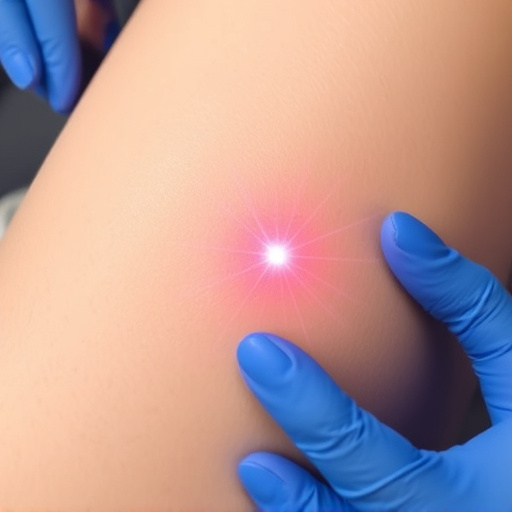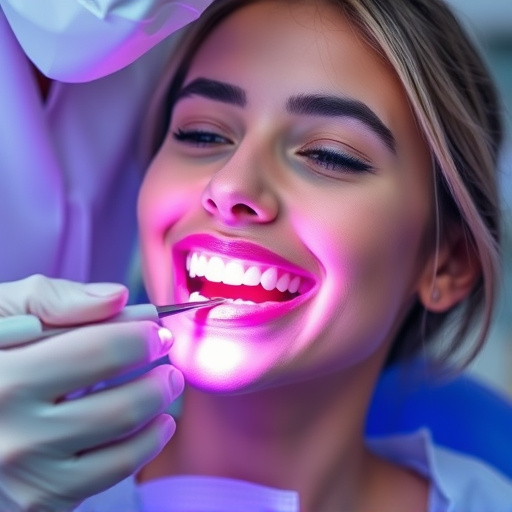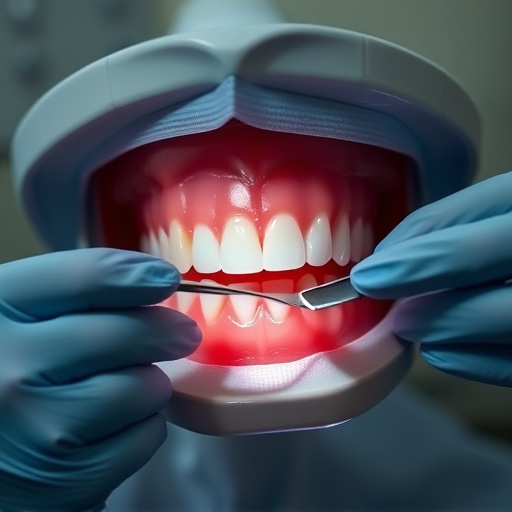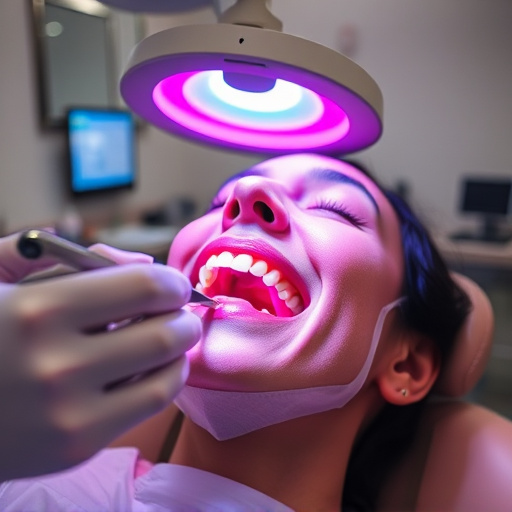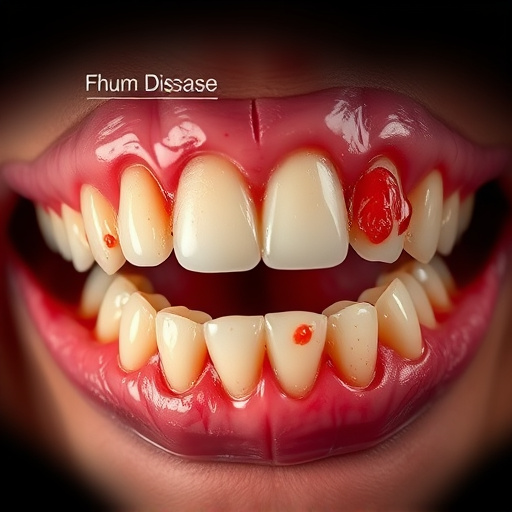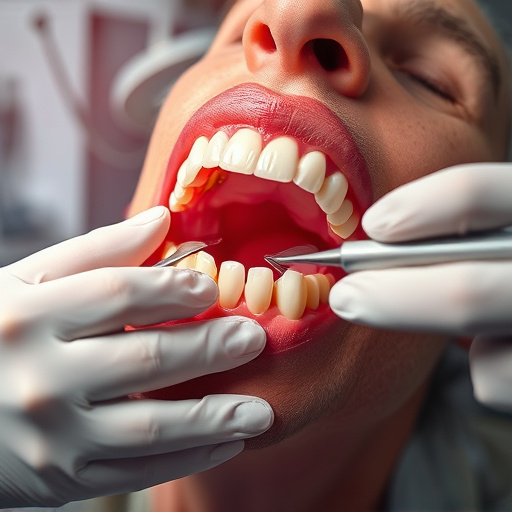Oral hygiene education is a cornerstone of dental care, empowering individuals to understand and take ownership of their oral health. General dentistry practices tailor education across age groups, preventing cavities through proper brushing techniques, timing, and flossing habits. Regular check-ups raise awareness about sugar consumption and professional cleanings, promoting overall dental well-being and potentially reducing extensive procedures.
Cavities remain a persistent dental health concern worldwide. However, prevention is achievable through effective oral hygiene education. This article delves into the fundamental role of education in fostering optimal oral health, focusing on three key areas: understanding the basis of oral health, teaching proper brushing techniques, and promoting daily habits that safeguard against cavities. By equipping individuals with knowledge, we empower them to take control of their dental well-being.
- Understanding the Foundation of Oral Health
- Educating on Proper Brushing Techniques
- Promoting Daily Habits for Cavity Prevention
Understanding the Foundation of Oral Health
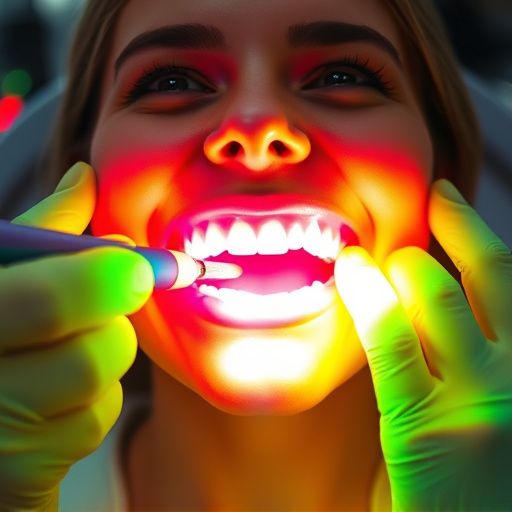
Oral hygiene education forms the bedrock of any comprehensive dental care routine. It’s about more than just teaching individuals how to brush and floss effectively; it empowers them to understand and take ownership of their oral health. By instilling good habits from a young age, we set children on a path towards a lifetime of healthy teeth and gums. This foundation is crucial, as proper oral hygiene prevents not only common issues like tooth decay but also more complex problems that may require procedures like wisdom tooth removal in the future.
General dentistry practices play a vital role in providing this education, often tailoring their approach to different age groups. From teaching children’s dentistry techniques to helping adults maintain optimal oral health, these professionals guide patients towards making informed choices. Regular check-ups and discussions about oral hygiene routines ensure that any potential issues are addressed promptly, preventing small problems from becoming more significant and costly procedures in the future.
Educating on Proper Brushing Techniques
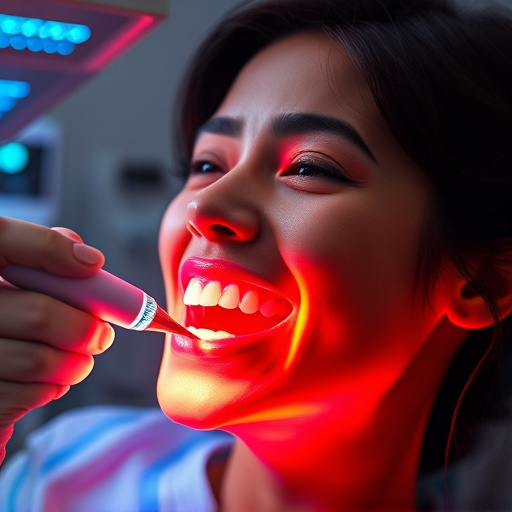
Oral hygiene education plays a pivotal role in cavity prevention. Teaching individuals, especially children, the correct brushing techniques is fundamental. This involves demonstrating how to hold and angle the toothbrush effectively, ensuring every surface of the teeth and tongue is reached. Proper brushing should be gentle yet thorough, taking into account the sensitive nature of oral tissues. Regular practice reinforces good habits from a young age, setting the foundation for lifelong dental health.
A key aspect of this process is emphasizing timing; brushing for at least two minutes twice daily is recommended. This ensures plaque and food debris are thoroughly removed, preventing bacteria from producing acids that erode tooth enamel. By integrating these practices into daily routines, family dentistry professionals can significantly reduce the risk of cavities and related dental issues, even for those requiring emergency dental care down the line.
Promoting Daily Habits for Cavity Prevention
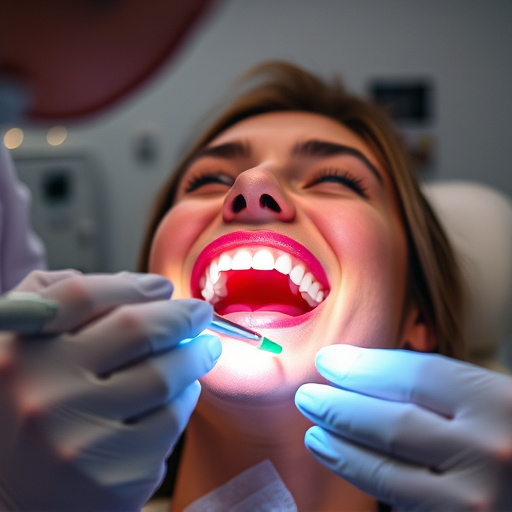
Maintaining good oral hygiene is a fundamental aspect of cavity prevention. By educating individuals on proper brushing and flossing techniques, we can empower them to take control of their dental health daily. Start by teaching children the importance of oral care from a young age; this sets a lifelong habit of diligent brushing twice a day and flossing once daily. These simple yet effective practices significantly reduce the risk of cavities and promote overall dental well-being.
Oral hygiene education goes beyond individual responsibility. It also plays a crucial role in public health initiatives, especially in children’s dentistry. Regular sessions can help raise awareness about the impact of sugar consumption and the importance of professional cleanings. Additionally, it highlights the value of regular dental check-ups, which can early detect any potential issues, including cavity formation. This proactive approach to oral care may even reduce the need for extensive procedures like dental crowns or implants in the future.
Cavity prevention begins with empowering individuals through comprehensive oral hygiene education. By understanding the foundational aspects of oral health, practicing proper brushing techniques, and adopting daily habits that promote cavity resistance, we can significantly reduce dental decay. Investing in oral hygiene education is a key step towards fostering better oral health outcomes for everyone.


